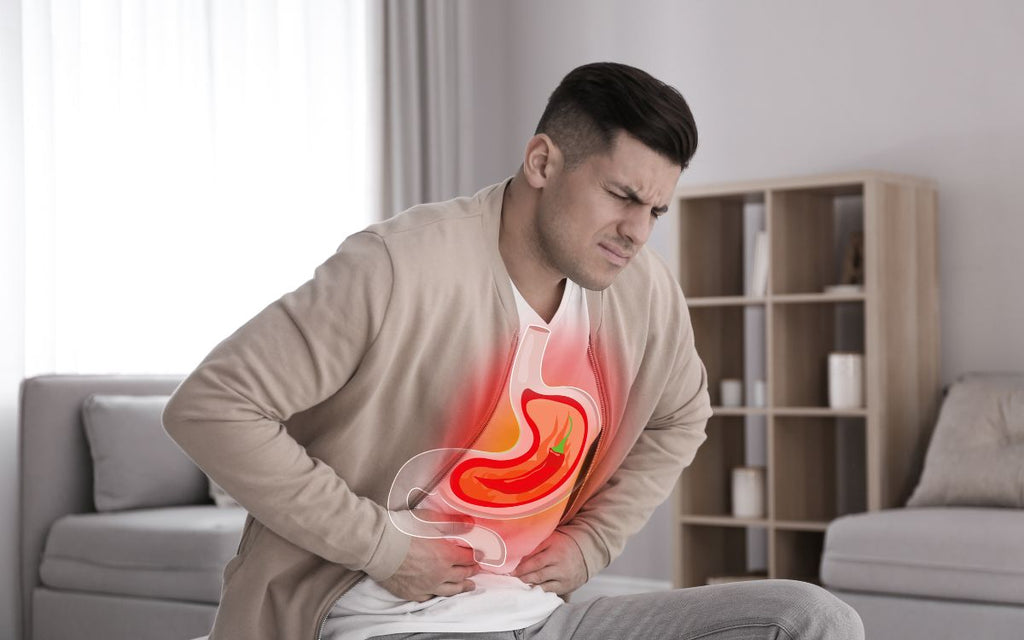
Mar 08 , 2024
Introduction
Coffee is a beloved morning ritual for millions worldwide, providing a much-needed energy boost to start the day. However, the habit of consuming coffee on an empty stomach can lead to various health concerns, including acid reflux, anxiety, and impaired nutrient absorption. Understanding the impact of this practice is crucial for making informed decisions about your coffee consumption.
The Effects of Coffee on an Empty Stomach
1. Increased Acid Production

Coffee is a known trigger for the production of stomach acid (gastric acid). When consumed on an empty stomach, the acid has no food to digest, which can build up and irritate the stomach lining. This can lead to various discomforts, such as a burning sensation in the chest (heartburn), a sour taste in the mouth, or even more severe conditions like gastroesophageal reflux disease (GERD). The acidity of coffee can exacerbate these symptoms, making it advisable to eat something before enjoying your cup.
2. Anxiety and Jitters

Caffeine, the primary stimulant in coffee, can have pronounced effects on the central nervous system. When ingested without food, caffeine is absorbed more quickly into the bloodstream, rapidly increasing heart rate and blood pressure. This can manifest as feelings of nervousness, anxiety, or restlessness, commonly referred to as "jitters." For those with existing anxiety disorders, consuming coffee on an empty stomach can intensify these symptoms, making it important to moderate caffeine intake and ensure you've eaten something beforehand.
3. Impaired Nutrient Absorption
Coffee contains compounds that can hinder the absorption of certain nutrients, particularly iron and calcium. When consumed on an empty stomach, these effects can be more pronounced, potentially leading to deficiencies over time. Iron is crucial for transporting oxygen in the blood, while calcium is essential for bone health. To mitigate this, waiting at least 30-60 minutes after eating before drinking coffee is advisable, allowing your body to absorb these vital nutrients effectively.
4. Digestive Issues

The combination of increased stomach acid and caffeine's laxative effect can lead to digestive discomfort for some individuals. Symptoms may include stomach cramps, nausea, or diarrhoea. In extreme cases, long-term consumption of coffee on an empty stomach can contribute to the development of gastritis or peptic ulcers, which are open sores that develop on the lining of the stomach or small intestine. To avoid these issues, consuming coffee after a meal or with a snack is recommended to provide a protective buffer for your stomach and intestines.
Tips for Healthier Coffee Consumption
1. Eat Before You Drink

Consuming a small meal or snack before enjoying your coffee can provide a protective layer in your stomach, helping to absorb some of the acids produced by coffee. This can significantly reduce the chances of experiencing discomfort, heartburn, or acid reflux. Foods that are high in fibre or protein, such as whole-grain toast with avocado or a yoghurt parfait, can be particularly effective in buffering your stomach against the acidic effects of coffee.
2. Choose Lower Acid Coffee

The acidity of your coffee can vary depending on the type of beans and the roasting process. Dark roast coffees are generally lower in acidity compared to light roasts, as the roasting process breaks down some of the acidic compounds. Additionally, certain coffee varieties are naturally lower in acidity, and some brands offer low-acid options designed to be gentler on the stomach. Experimenting with different types of coffee can help you find a blend that suits your taste preferences and is easier on your digestive system.
3. Limit Caffeine Intake

While caffeine is the component in coffee that provides its energising effects, it can also contribute to feelings of anxiety, jitters, and increased heart rate, especially when consumed in large quantities. If you find that caffeine affects you negatively, consider reducing your intake by drinking smaller servings of coffee, choosing blends with lower caffeine content, or switching to decaffeinated coffee. Decaf options can still provide the enjoyable flavour of coffee without the stimulating effects of caffeine.
4. Stay Hydrated

Caffeine has diuretic properties, which can lead to increased urination and dehydration if not balanced with adequate water intake. To maintain proper hydration, make it a habit to drink a glass of water before or alongside your coffee. Staying hydrated can also help alleviate some of the potential digestive issues associated with coffee consumption, such as constipation, by supporting regular bowel movements.
Levista Coffee
Nestled in India's Coorg region, Levista Coffee curates unique flavor experiences. Their meticulous selection of estate-grown beans and distinct roasting techniques elevate your coffee ritual.
Beyond the classic South Indian filter coffee, Levista offers a symphony of flavors. Savor the earthy monsoon Malabar, or explore their range of flavored coffees like cardamom and hazelnut. Their commitment to quality extends to sustainable sourcing and responsible roasting, ensuring an exceptional cup every time. Embark on a flavorful adventure with Levista Coffee.
Conclusion
While many people treasure their morning coffee ritual, consuming it on an empty stomach can pose health risks. To mitigate these effects and maintain your well-being, consider implementing some straightforward changes to your coffee routine. Eating a small meal or snack before your coffee can buffer your stomach against acidity, reducing the likelihood of discomfort or digestive issues. Opting for lower-acid coffee varieties, such as dark roasts or low-acid blends, can further ease the impact on your stomach. Additionally, practising moderation in your caffeine intake and being mindful of how your body responds to coffee are crucial for a healthy coffee experience. By making these simple adjustments, you can continue to enjoy your beloved morning brew without sacrificing your health.
FAQs
Is it harmful to drink coffee on an empty stomach?
Drinking coffee on an empty stomach can increase acidity, potentially leading to digestive discomfort, heartburn, or acid reflux for some people.
Can drinking coffee without eating first cause anxiety?
Yes, consuming coffee on an empty stomach can amplify caffeine's stimulating effects, potentially causing increased anxiety, jitters, or palpitations.
How does coffee affect nutrient absorption when consumed on an empty stomach?
Coffee can interfere with the absorption of certain nutrients, such as iron and calcium, particularly when consumed before meals.
Are there any benefits to drinking coffee on an empty stomach?
While some people enjoy the quick energy boost, drinking coffee on an empty stomach has no specific health benefits compared to consuming it with food.
Can I reduce the negative effects of drinking coffee on an empty stomach?
To minimise potential adverse effects, consider eating a small meal or snack before your coffee, choosing lower-acid coffee varieties, or drinking water alongside your coffee.
Is it better to drink coffee before or after breakfast?
Drinking coffee after breakfast is generally better to reduce the risk of digestive discomfort and ensure better nutrient absorption from your meal.
Are there any long-term health risks associated with drinking coffee on an empty stomach?
Regularly drinking coffee on an empty stomach may increase the risk of developing chronic digestive issues, such as gastritis or acid reflux, over time.

